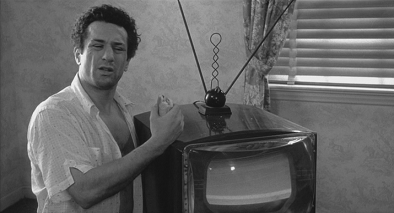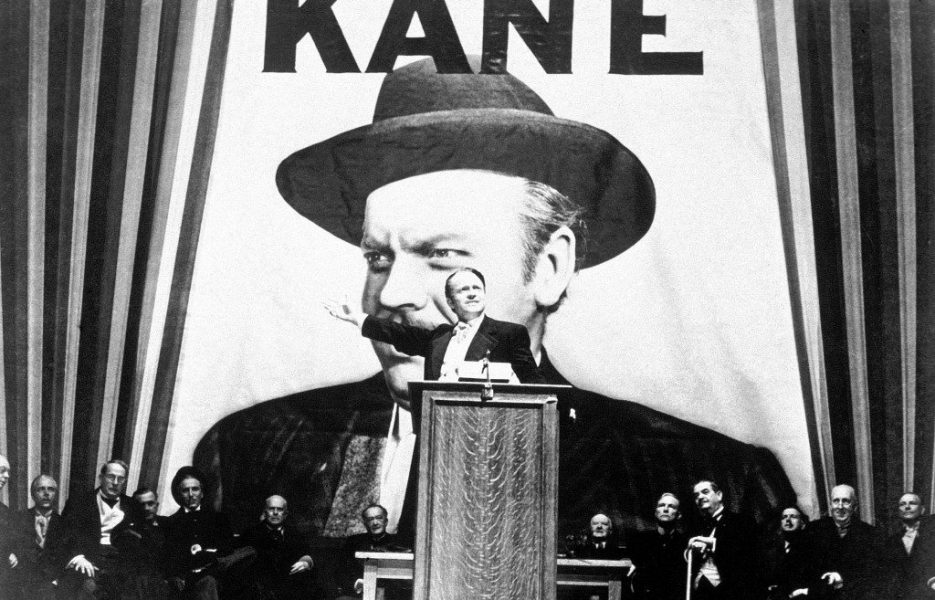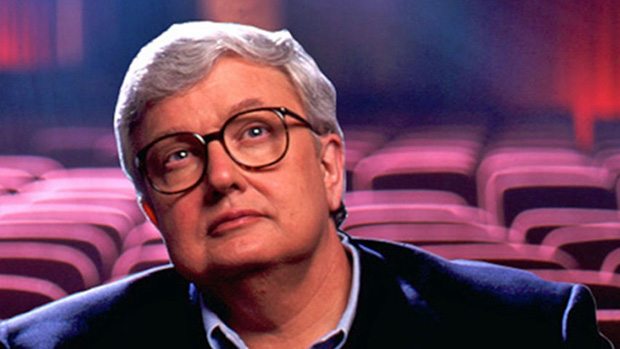Roger Ebert, the name itself is enough to introduce this legend. Every Cinemaholic is familiar to Ebert and his opinions. He is often cited as “The Most Influential Critic” in the history of Cinema. A noble figure, Roger Ebert remained the critic of ‘Chicago Sun-Times’ from 1967 until his last day. Pulitzer Awardee, Ebert, unlike the established method, rated movies out of 4 stars. The reviews were juxtaposed with ideal films of their genre. His sound reviews amassed huge following, even influencing the success of the film. Eventually, his popularity grew, turning him into a Television icon. PBS ran ‘Sneak Previews’ with Ebert and Gene Siskel, promoting Televised reviewing. ‘Two-thumbs up’ turned into their Trademark for critical appreciation. Later, Richard Roeper verbally sparred with Ebert after Siskel’s Death. Roger Ebert is the only critic to receive a star on Hollywood’s ‘Walk of Fame.’
Ebert considered cinema to be the greatest art form developed by humans. It has the prowess to change or influence your vote or your mind ( We couldn’t agree more). The statement literally rationalized our existence, us The Cinemaholics. All of us, nearly everyone, has their list of favorites. Cineasts know the significance of their favorite Movies in their life. The most popular Pundit also designed his set of favorite movies that moved him emotionally. According to him, they are ‘The Greatest of All Time’. Therefore, here is the list of his favorite movies, with his quotes regarding them.
10. 28 UP (1984)
“The miracle of the film is that it shows us that the seeds of the man are indeed in the child. Some do better than we expect, some worse, and some seem completely bewildered. But the secret and mystery of human personality is there from the first. This ongoing film is an experiment unlike anything else in film history.”
Boyhood is considered to be the best coming-of-age movie in Hollywood. Wait till you fathom this underrated phenomenon. 28 UP is a spectacular documentary in the UP series. Michael Apted, the Director, gathered 14 children and interviewed them. All 14 had different socioeconomic statuses in England. Subsequently, Apted interviewed him after every 7 year span. With every interview, the subjects responded differently. In 28 UP, their dreams and destinies vary, yet they are emotionally attached to their childhood dream. This documentary film holds a special rank in Ebert’s list. At present, eight episodes have been produced till 56 UP, and Michael Apted wishes to do 84 UP at his 99! Now, this is inspiring.
9. Raging Bull (1980)

“Some day if you want to see movie acting as good as any ever put on the screen, look at a scene two-thirds of the way through ‘Raging Bull. It takes place in the living room of Jake LaMotta, the boxing champion played by De Niro. He is fiddling with a TV set. His wife comes in, says hello, kisses his brother, and goes upstairs. This begins to bother LaMotta. He begins to quiz his brother (Joe Pesci). The brother says he don’t know nothin’. De Niro says maybe he doesn’t know what he knows. The way the dialog expresses the inner twisting logic of his jealousy is insidious. De Niro keeps talking, and Pesci tries to run but can’t hide. And step by step, word by word, we witness a man helpless to stop himself from destroying everyone who loves him.”
Scorsese’s ‘Taxi Driver’ was formerly in Ebert’s Top Ten Movies. Eventually, ‘Raging Bull’ took place in November 1980. Arguably the greatest sports biopic of all time, it was produced in black and white. ‘Raging Bull’ is a masterpiece, an oeuvre of Martin Scorsese with an Academy-winning performance by Robert De Niro. Based on the controversial and vicissitude life of Boxer Johnny LaMotta, the Bronx Bull. Robert De Niro gained about 60 pounds to portray LaMotta’s post-boxing period. Such perplexing methods for his role won him accolades and an Academy Award.
8. Notorious (1946)

“In the world of film, he was known simply as The Master. But what was he the Master of? What was his philosophy, his belief, his message? It appears that he had none. His purpose was simply to pluck the strings of human emotion — to play the audience, he said, like a piano.”
Sir Alfred Hitchcock’s most controversial film ‘Psycho’, was also his most successful one. But when it comes to Hitchcock, his arsenal is unparalleled. ‘North By Northwest,’ ‘Vertigo,’ and ‘Rear Window’ are all mesmerizing in one way or another. ‘Notorious’ is his great take on a love story in a Nazi Backdrop. With Classical Legends Cary Grant and Ingrid Bergman leading the cast, Claude Rains adds another dimension to this love triangle. T.R. Devlin (Cary Grant) appoints Alicia (Bergman) to spy on Sebastian (Rains) on his alliance with the Nazis. Spying and Love run parallel to each other, both concentrated equally. And how can one ever forget the two-and-a-half-minute kissing scene? Hitchcock defies the then 3-second rule like a boss.
7. Casablanca (1943)
_06.jpg)
“If there is ever a time when they decide that some movies should be spelled with an upper-case M, Casablanca should be voted first on the list of Movies.” – Roger Ebert while praising ‘Casablanca’
Unarguably, one of the most romantic films ever made. Director Michael Curtiz creates a masterwork to seize every heart that fathoms it. A war-torn Casablanca suffers with its immigrants, people being killed every day. In the midst of hell, Rick (Humphrey Bogart) and Ilsa (Ingrid Bergman) accidentally reunite only to part away. Ebert considered Ilsa “luminous” and commented on pair’s chemistry: “She paints his face with her eyes”. The unaccomplished love of Rick and Ilsa, reigns over every generation that experiences it. Casablanca won acclaim and went on to win three Academy Awards- Best Picture, Best Director(Michael Curtiz), and Best Screenplay. It is the second movie of Ingrid Bergman and Claude Rains in Roger Ebert’s ‘Greatest’ Movie list. The other being Alfred Hitchcock’s ‘Notorious’.
6. Gates of Heaven (1980)

“Oh, it’s factual enough: The people in this film really exist, and so does the pet cemetery. But Morris is not concerned with his apparent subject. He has made a film about life and death, pride and shame, deception and betrayal, and the stubborn quirkiness of human nature.”
One of the two Documentaries in the list. This describes the diverse taste of the ‘Film Pundit’. Gates of Heaven displays a pet cemetery that is closed due to legal disputes. The story is covered in the form of interviews conducted by Director Errol Morris. Through those interviews, the director unravels the inner emotions of the people. A woman, during her interview, said, “There’s your dog; your dog’s dead. But where’s the thing that made it move? It had to be something, didn’t it?” Errol Morris digs deep in the philosophical perspectives of life and death. A unique subject, riveting answers baffle your views on the core theme. German director Werner Herzog, claimed that if Errol Morris ever completed this film, he would eat his own shoes. The movie was released, and Mr. Herzog is a man of his word. Rest you can guess, I assume.
5. 2001: A Space Odyssey (1968)
“Yes, it was a landmark of special effects, so convincing that years later, the astronauts, faced with the reality of outer space, compared it to “2001.” But it was also a landmark of non-narrative, poetic film-making, in which the connections were made by images, not dialog or plot.”
The most popular movie in this list, by the most versatile Filmmaker of all time. Stanley Kubrick possessed every frame of his film to execute his extraordinary ideas. Usually, when I share the spectacular scenes of 2001 with my pals. They believe it to be a movie of the early 2000s. The Visuals and Effects are beyond imagination, stunning in every frame. Stanley Kubrick’s creativity was far ahead of his time. The cut, where the bone turns into the Spaceship, the most dramatic on the history cinema. Reason, why it remains timeless lies in its deficiency of dialog(s). Visuals and Images bind your senses, heedless of your generation. HAL 9000 is revered as one of ‘The Greatest Villain’ of all time. HAL 9000 is AI(artificial intelligence), is not alive. Such is the brilliance of Kubrick’s work. Ebert believed the meaning of the film is beyond cognition.
4. Floating Weeds/Ukigusa (1959)

“I do not expect many readers to have heard of this film, or of Yasujiro Ozu, who directed it. Ozu weaves an atmosphere of peaceful tranquility, of music and processions and leisurely conversations, and then explodes his emotional secrets, which cause people to discover their true natures. It is all done with hypnotic visual beauty.”
As the legend says, I was unaware of the Japanese auteur and his breath-taking films. Regarded as one of the “World’s most influential Director”, Yashujiro Ozu had a significant impact on Roger Ebert. Two of Ozu’s films, Tokyo Story and Floating Weeds, have been a part of his list of Favorite. ‘Floating Weeds’ is about an actor and owner of a Drama troop Kamajuro(Ganjirō Nakamura). He visits his former mistress, only to find he has a son. The atmosphere created by Yashujiro Ozu is initially serene and calm through music and light conversation. Eventually, he stirs the relationship between the characters and releases emotions. Director James Mangold said, “Ozu is the world’s greatest director film geeks have never heard of.” Many great filmmakers recall of Floating Weeds and Tokyo Story as their favorite films.
3. La Dolce Vita (1960)
“When I saw the movie around 1980, Marcello was the same age, but I was 10 years older, had stopped drinking, and saw him not as a role model but as a victim, condemned to an endless search for happiness that could never be found, not that way. By 1991, when I analysed the film a frame at a time at the University of Colorado, Marcello seemed younger still, and while I had once admired and then criticized him, now I pitied and loved him. And when I saw the movie right after Mastroianni died, I thought that Fellini and Marcello had taken a moment of discovery and made it immortal.” – Roger Ebert (concluded after watching ‘La Dolce Vita’ in all stages of his adult life)
Federico Fellini is revered as ‘The Greatest Italian Auteur’ of his time. ‘La Dolce Vita’ follows Marcello Rubini, a magazine Journalist and his voyage of ‘The Glamorous Life of Rome’. Ebert was highly influenced, observing the journey of a Journalist, which he was himself. On a personal note, my first viewing of Fellini’s art, allured me towards Marcello’s scandalous life. Ebert confessed his attraction for the same. Later, his views changed with the changing stages of life. (I hope it changes for me as well). La Dolce Vita remained in his top 10 list of Movies for Sight and Sound poll every decade. Such was the impact of Fellini’s auteur-ship on his thoughts.
2. The Third Man (1949)
“Apart from the story, look at the visuals! The tense conversation on the giant Ferris wheel. The giant, looming shadows at night. The carnivorous faces of people seen in the bombed-out streets of postwar Vienna, where the movie was shot on location. The chase through the sewers. And of course the moment when the cat rubs against a shoe in a doorway, and Orson Welles makes the most dramatic entrance in the history of the cinema.”
Sir Carol Reed’s Oliver! (1968) is considered as ‘The Greatest Musical Drama’ of all time. The Academy-winning Director proved his brilliance long before with this thriller. The Third Man explores a war-torn Vienna, with Holly Hunter(Joseph Cotton) searching for the suspicious death of his friend Harry Lime(Orsen Welles). Deeper mysteries are revealed as the story progresses. Ebert considered Harry Lime’s character among the best villains of all time. The movie is highly praised for its unusual cinematography. The dark noir theme and use of excellent ‘Dutch Tilt’ runs with the storyline. For Roger Ebert, this one completely embodies the love of going to the cinema. Orsen Welles appears for the second time in his favorite list.
1. Citizen Kane (1941)

“It ends its search for “Rosebud,” his dying word, with a final image that explains everything and nothing, and although some critics say the image is superficial, I say it is very deep indeed because it illustrates the way that human happiness and pain is not found in big ideas but in the little victories or defeats of childhood.”
Arguably, the Greatest Movie of all time. ‘Citizen Kane’ is about the life and legacy of Charles Foster Kane, the News Tycoon and “Rosebud”. Orsen Welles directed and played the billionaire enigma. ‘Citizen Kane’ is considered as an educational institute for film aspirants, as it was for Roger Ebert. Cinematographer Greg Toland invented a deep-focus lens to focus on both the subject and background. The Academy underrated this momentous event, awarding it only Best Original Screenplay out of 9 nominations. The Sight & Sound poll ranked ‘Citizen Kane’ as ‘The Greatest Film of All Time’, for 5 consecutive polls. In Ebert’s list, Orsen appears twice, the other with The Third Man.
Read More: 100 Best Movies of All Time



You must be logged in to post a comment.